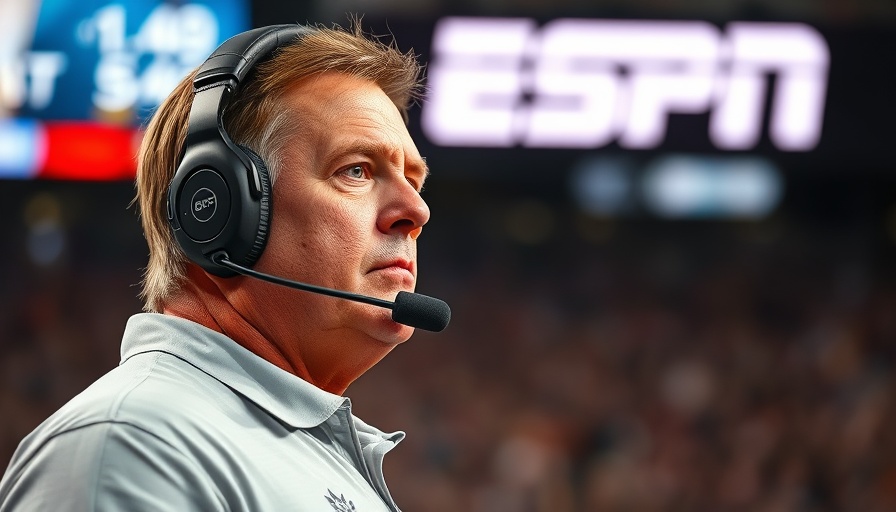
The Tennessee Titans: A Case Study in Dysfunction and Pressure
The recent firing of Brian Callahan, head coach of the Tennessee Titans, after a disappointing start to the season, highlights a growing concern in the NFL regarding the treatment of young quarterbacks and the organizational dynamics that shape their careers. Callahan's dismissal comes on the heels of the Titans drafting Cam Ward as the number one overall pick and reflects a cycle of dysfunction that has plagued the franchise. The Titans' chaotic approach, with three different general managers and head coaches since 2022, is emblematic of a broader issue within the NFL: the impatience with rookie quarterbacks and the quest for immediate success.
In Stephen's A-List of TOP 5 NFL teams, the discussion shines a light on the ongoing issues faced by young quarterbacks within disorganized franchises like the Tennessee Titans, prompting us to analyze the broader implications for the league.
Understanding the Young QB Dilemma
Drew Brees, an NFL legend, asserts that many young quarterbacks need around 50 high-level starts to truly gauge their potential. This idea resonates as organizations often rush the development of these players without considering the necessary time for learning and growth. Brees draws parallels with players like Sam Darnold and Baker Mayfield, who have found success only after enduring tumultuous beginnings in subpar situations. The Titans' impatient decision to replace Callahan does not just reflect a failed season, but a systematic issue that potentially hampers a young quarterback's future.
Organizational Impatience: The Real Culprit?
This trend of hasty decisions signals a critical need for franchises to establish a supportive environment surrounding their quarterbacks. The focus on immediate results often leads to instability, leaving players with little room to adapt or develop. In the Titans' case, it seems that neither Callahan nor Ward were given a fair opportunity to share a developmental journey. As noted, history shows that long-term relationships between quarterbacks and coaches, like that of Brees and Sean Payton, foster success and stability. Organizations must recognize the importance of building that continuity instead of yielding to external pressures for immediate results.
Lessons from Other Franchises: Success Stories
Several NFL teams illustrate how stability can yield positive outcomes. The New England Patriots, for example, have established a culture that prioritizes long-term development, not just fleeting success. While the Patriots are currently facing a competitive AFC East, their methodical approach of building around their young talents has been noteworthy. Fanbases should take note: prolonged investment in a quarterback, like what was done with Tom Brady or even Mac Jones, can lead to eventual triumphs.
The Impact of Team Dynamics on Quarterbacks
The dynamics of an organization can significantly boost or ruin a quarterback's confidence. The Titans, focusing more on possibilities of radical changes rather than gradual improvement, have allowed an overwhelming amount of pressure to pile on their players. The cycle of firing and hiring without a clear strategic vision does a disservice to the athletes, who struggle to adapt to new systems under constant scrutiny. It exposes a fundamental flaws in understanding how to develop talent effectively.
Rethinking Expectations: A Necessity
It's crucial for organizations to approach the development of young quarterbacks with a long-term vision. Expecting immediate results from players who might still be adjusting to the NFL's speed and intensity is unrealistic. The case of the Titans is a call to action: teams must support young talents with seasoned backups, competent coaching staff, and an environment that allows for growth without fear of swift judgment. Fostering a culture that emphasizes patience, continuity, and development will not only help the Titans but can set a precedent for other franchises grappling with similar issues.
Conclusion: A Call for Change in NFL Culture
The turmoil within the Tennessee Titans serves as a cautionary tale regarding the broader narrative in the NFL. As fans and observers, we should advocate for organizations that prioritize nurturing their quarterbacks rather than cycling through coaches in search of instant success. The future of a franchise’s star quarterback hinges not just on skill, but on the collective effort of the organization to provide a conducive atmosphere for development. For an improved NFL experience, the message is clear: let's champion long-term investment, strategic stability, and patience in nurturing the next generation of star quarterbacks.
 Add Element
Add Element  Add Row
Add Row 



Write A Comment